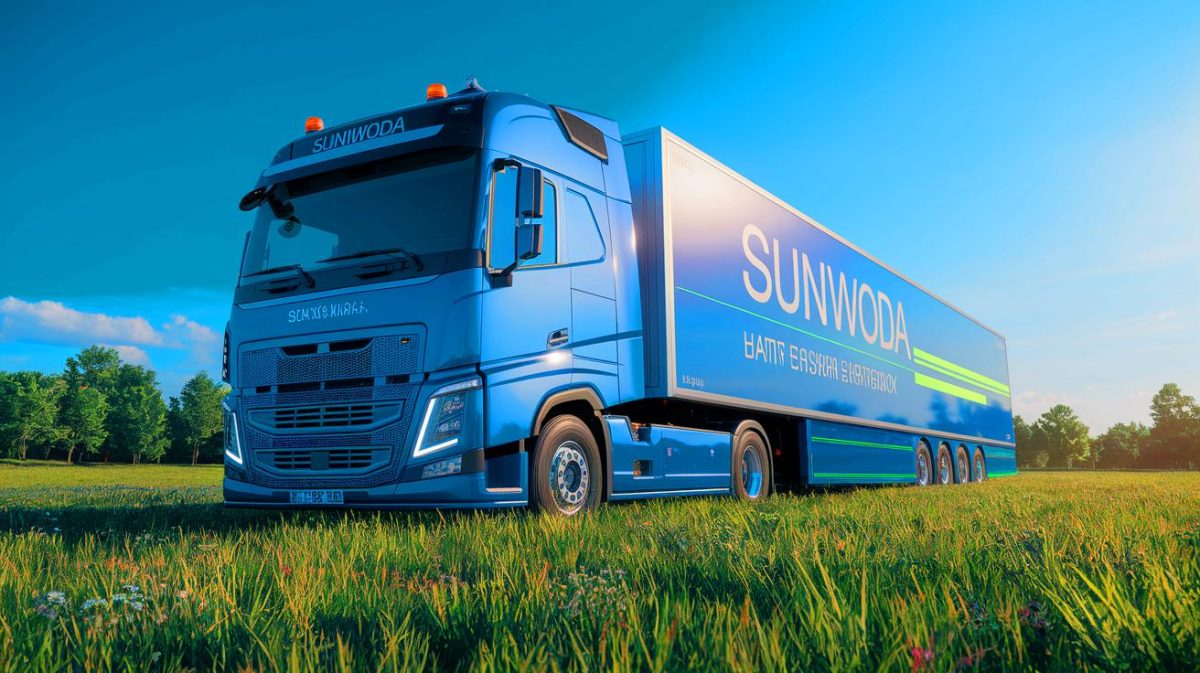| IN A NUTSHELL |
|
The world of energy storage is undergoing a transformation, and at the forefront of this change is the China-based company Sunwoda. They have recently unveiled an innovative mobile battery system, the MESS 2000, which promises to revolutionize how we think about mobile energy solutions. This 33-foot giant is not just a truck; it’s a powerhouse on wheels, designed to supply electricity to hundreds of homes and provide a sustainable alternative to traditional power sources. With its debut at the 13th Energy Storage International Summit & Exhibition, the MESS 2000 has already captured the attention of industry experts and consumers alike. But what makes this mobile energy giant truly remarkable?
Sunwoda’s MESS 2000: A World-First
Sunwoda’s MESS 2000 is a groundbreaking advancement in mobile energy storage, setting itself apart from conventional solutions with its impressive capabilities. At the heart of this system is a 2-megawatt-hour battery, capable of powering up to 400 homes for an hour. This mobile platform utilizes Sunwoda’s self-developed 314 Ah lithium-ion cells, which deliver a staggering 300% increase in capacity over traditional systems. The truck’s advanced cooling technology, employing ethylene glycol similar to car antifreeze, ensures that the battery operates efficiently and reliably, extending its lifespan to a minimum of 6,000 charge-discharge cycles.
Moreover, the MESS 2000 is designed to be cost-effective, offering operational savings of 15-20% compared to diesel generators. Its versatility is another standout feature, providing instant switching between grid power and battery usage in under 20 milliseconds. This capability is crucial for facilities like hospitals, where uninterrupted power is critical. The truck has also proven its durability through extensive testing, surviving extreme weather conditions and physical stress.
Safe and Reliable
Safety is a paramount concern for Sunwoda, and the MESS 2000 does not disappoint. The battery system is both fire and puncture-resistant, providing peace of mind to operators and users. An onboard fire suppression system can activate within 100 milliseconds of detecting a fire, ensuring rapid response to potential hazards. The truck’s maneuverability is another asset, with the ability to navigate tight turns and challenging terrains, including mountainous regions up to 9,843 feet in altitude.
Additionally, the platform can withstand harsh environments, from high temperatures of up to 131°F to humid conditions reaching 95%. Such resilience makes the MESS 2000 an ideal solution for remote or difficult-to-access areas. With plans to begin mass production by May 2025, Sunwoda is poised to meet the growing demand for mobile energy storage solutions, a market projected to reach $2.7 billion by 2025.
Applications and Impact
The potential applications for the MESS 2000 are vast and varied. Beyond serving as a backup power source during grid failures, the truck can function as a mobile electric vehicle charging station, simultaneously recharging two vehicles. This versatility makes it an attractive option for events, construction sites, and emergency response scenarios where reliable power is essential. The MESS 2000’s ability to replace parts of the grid during maintenance or construction further underscores its utility.
Such innovations are critical as the world moves towards sustainable energy solutions. By offering a mobile and efficient alternative to diesel generators, the MESS 2000 aligns with global efforts to reduce carbon emissions and reliance on fossil fuels. Its introduction could mark a significant step forward in achieving energy independence and resilience, particularly in regions prone to natural disasters or energy shortages.
The Road Ahead for Mobile Energy Storage
As Sunwoda prepares to deliver the MESS 2000 to market, the broader implications for mobile energy storage are becoming increasingly apparent. This technology represents a shift towards more adaptable and environmentally friendly power solutions, capable of meeting the diverse needs of modern society. With its robust design and efficient operation, the MESS 2000 is well-positioned to lead the industry in innovation and performance.
Looking ahead, the success of the MESS 2000 could pave the way for further advancements in energy storage technology, encouraging other companies to explore similar innovations. As the demand for portable and efficient energy solutions grows, so too does the potential for transformative change in how we generate, store, and use electricity.
The introduction of the MESS 2000 by Sunwoda is a testament to the power of innovation in addressing modern energy challenges. As we stand on the brink of a new era in mobile energy storage, one must wonder: How will other industries adapt to this shift, and what future innovations will emerge to further revolutionize our energy landscape?
Did you like it? 4.6/5 (20)









Wow, 400 homes from one truck? That’s pretty impressive! 🔋
Does this mean we can finally say goodbye to noisy diesel generators at events? 😊
How does the battery handle extreme cold temperatures? ❄️
Is this technology available for international markets or just in China?
Imagine using this at a music festival. No more power outages! 🎶✨
What happens when the battery runs out? Does it have a backup system?
Just wondering, how long does it take to fully charge the MESS 2000?